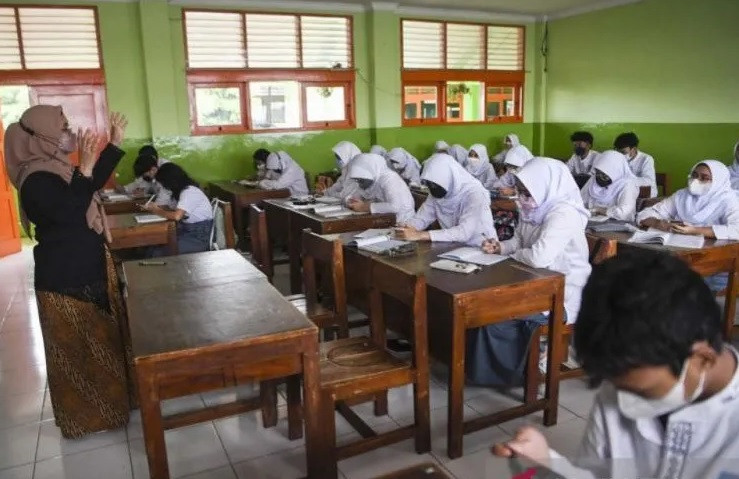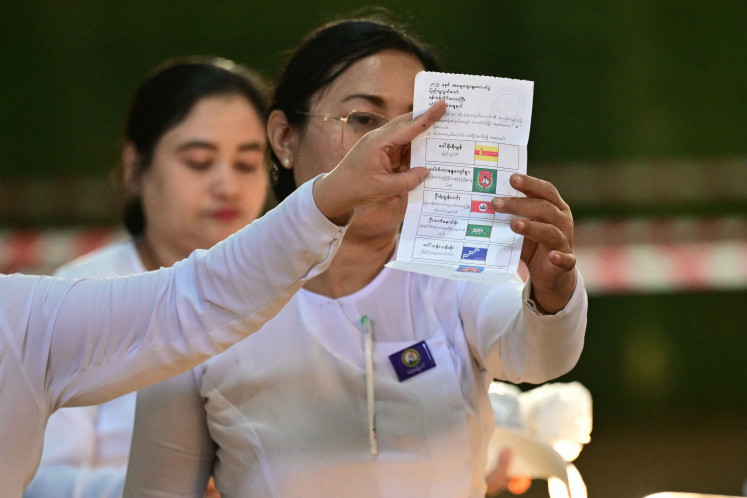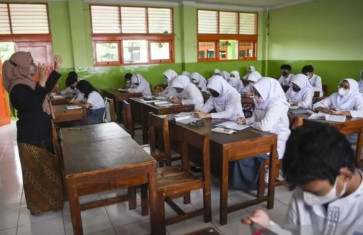Popular Reads
Top Results
Can't find what you're looking for?
View all search resultsPopular Reads
Top Results
Can't find what you're looking for?
View all search resultsPower relations and the hijab discipline
There must be a generally accepted explanation about the obligation to wear the hijab, like the obligation to wear red, blue and gray uniforms for elementary, junior high and high school students.
Change text size
Gift Premium Articles
to Anyone
W
hat lessons can we learn from the recent shaving or cutting of the hair of 19 female students at a state junior high school in Lamongan, East Java? The punishment for “violating” the rules of wearing the hijab in its many forms is saddening but will recur because the solutions offered fail to address the root of the problem.
We recall a case that later went viral on social media about a non-Muslim female student at a state vocational school in Padang, West Sumatra, in 2021. She felt she was forced to wear the hijab as a religious garment. This incident ended with a statement from the school that wearing the hijab was not mandatory, thus giving the student the freedom to choose. However, she and her family were bullied by the community who believed the school's Muslim dress code policy was correct.
Therefore, the hair-cutting case should be viewed in a broader context to understand what actually happened and how to prevent it recurring in the future. Using the "power relations" theory of the French philosopher Michel Foucault, we can see power relations operating in this case. Inequality clearly marks the relation between a teacher and students, between the discipline-enforcing teacher and the prone-to-discipline students, between the regional educational institution and the school, and between the school and the victims’ parents.
From a feminist perspective, this act of forcing students to wear the hijab by punishing violators is an elaboration of the concept of power relations, both political and gender relations.
These two power relations are a simplification of the portrayal of relations that view the aspects of politics and social gender as the most dominant elements that form the basis of unequal relationships between perpetrators and victims. In this concept, power relations are closely related to the power over knowledge, which has an effect on oppression.
Beyond Foucault's power relations concept, the hair-cutting incident is a perfect example of the operation of power relations that are almost uncontrollable due to the power over the issuance of disciplinary regulations, which are stipulated unilaterally based on ethical norms derived from a polarizing religious perspective.
This happens when those in power (teachers) not only feel controlled by their superiors (school principals, school committees, local technical implementation units, the education ministry), but also feel that they are entrusted by God to enforce religious commands, in this case the obligation to cover aurat (the female form).



















